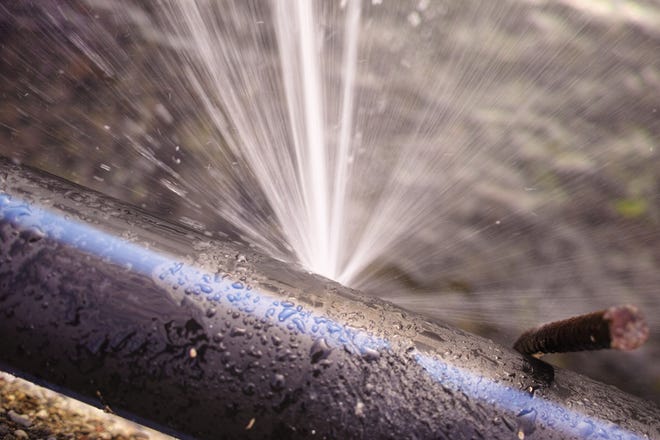Water utilities invest a lot of time and resources toward the maintenance of their community’s water supply and sanitation systems to help ensure its resilience, sustainability and safety. However, it is often overlooked that residents are indispensable partners in this ongoing effort to maintain a reliable water supply. Beyond being mere consumers of water, residents act as stewards of this essential resource through simple measures such as fixing leaks promptly, using water-efficient appliances and practicing mindful landscaping with efficient irrigation. Additionally, the improper disposal of trash, oil, grease or chemicals can have lasting environmental impacts, as well as cause clogs and disruptions in the treatment process.
There are at least two sets of separate plumbing subsystems running through every home that require routine maintenance: pipes that supply clean, treated water into the home and those that carry used water (known as wastewater) out. Both of these systems require the water to be treated. For many homes, clean water originates at a water treatment plant where certified operators convert raw water, such as from a lake, to drinking water standards. Separately, wastewater, if not managed by an onsite sewage facility (septic system), is directed to a wastewater treatment plant, or a recycled water plant, as is the case for Lakeway Municipal Utility District, where the wastewater is treated to the highest standards required for safe reuse in irrigation systems throughout the community.
Central Texans understand the importance of preparing for our unpredictable climate, from scorching heatwaves to torrential downpours and the occasional freeze. Through all of these challenges and other routine wear and tear, our homes must be prepared. When residents safeguard their plumbing and irrigation systems, they are taking proactive measures to not only protect their home, but also contribute to the responsible use of water. A combination of regular inspections, timely repairs and strategic prevention can significantly enhance the resilience of home plumbing and irrigation systems, such as:
- Detect and address plumbing issues before they escalate by inspecting your plumbing system regularly for leaks, drips or signs of corrosion both inside and outside your home. Look for water stains, mold growth or unusual odors.
- Insulate exposed pipes, wrap outdoor faucets and seal gaps during colder months to help prevent freezing and potential burst pipes.
- Routine maintenance of the irrigation system includes clearing debris from sprinkler heads, checking for clogs in the irrigation lines and adjusting the watering schedule based on seasonal needs. Upgrading controllers and installing rain sensors also can help optimize irrigation by automatically adjusting schedules based on local weather conditions.
- Ensure everyone in your household is aware of proper disposal practices and understands what shouldn’t go down drains or in toilets, including oil, grease, chemicals and trash.
As we enter a new year with the drought far from over, let us unite in the commitment to conserve water. By fortifying our homes against the challenges of nature and taking swift action when problems occur, we can collectively reduce water loss, ensuring that our community remains resilient and water-wise. Together, we can build a resilient future where water is cherished and used responsibly for generations to come.
Written by Stephanie Threinen, public information liaison for the Lakeway Municipal Utility District. Earl Foster is the general manager of LMUD.
www.statesman.com
https://www.statesman.com/story/news/local/lake-travis-view/2024/01/25/lakeway-mud-home-plumbing-maintenance-aids-in-water-system-resilience/72324038007/
















